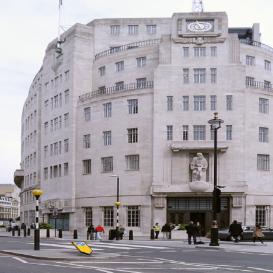In the lead up to the general election, the Conservatives campaigned on the economy and job creation, and at the helm of its media manifesto was the BBC licence fee. The government had controversially frozen the £145.50 in 2010 for six years, and the BBC took on the funding of the World Service from the Foreign and Commonwealth Office, as well as the Welsh language TV channel S4C.
In its manifesto, the Conservatives said the licence fee would remain frozen pending charter renewal.
“We will deliver a comprehensive review of the BBC Royal Charter, ensuring it delivers value for money for the licence fee payer, while maintaining a world class service and supporting our creative industries,” the party wrote in the manifesto. “That is why we froze the BBC licence fee and will keep it frozen, pending charter renewal.”
Meet the new Secretary
After David Cameron received his majority in Thursday’s tight election results, he turned to his cabinet, which completed its shuffle Monday. Cameron appointed a brand new Culture Secretary—John Whittingdale, the MP for Maldon who chaired Parliament’s Culture, Media and Sport committee over the past ten years, replacing Sajid Javid, who becomes Business Secretary, replacing Liberal Democrat Vince Cable, who lost his seat at the election.
The move came as Conservatives had become angry at the coverage of their party over the course of the general election campaign, saying it had been an unforgivable bias towards Labour, with Javid adding the coverage had been left thinking, in an interview with the Daily Mail.
Questions were raised on the broadcaster’s future, in particular the state of funding and the licence fee. Whittingdale has been considered a critic of the licence fee, saying according to a report from the Telegraph, it had been worse than the poll tax.
The licence fee – up for debate
But, in a report from the Culture, Media and Sport committee from this past February, the licence fee had been beneficial in the short term, but said it must include services like the iPlayer.
The committee recommended in the long term a broadcasting levy, similar to a system introduced in Germany in 2013, according to a report at the time of the release from the BBC. The system would also do away with the need to put criminal charges forward for those who didn’t pay the fee. Other suggestions recommended by the committee included a subscription based funding model, with people paying for the services they really want.
Our Report on the Future of the BBC has been published today. View here: http://t.co/IeNpIx2GJj
— CMS Committee (@CommonsCMS) February 26, 2015
Whittingdale said the licence fee could however be sustainable until at least 2026.
“In the long term it is unsustainable,” Whittingdale said as quoted by The Guardian. “When I say unsustainable in the long term, I’m talking about over 20, 50 years. I think in the longer term we are potentially looking at reducing at least a proportion of the licence fee that is compulsory and introducing an element of choice.”
The new culture secretary, John Whittingdale, recently said that the BBC Licence Fee is ‘worse than poll tax’. http://t.co/LlrkofSujU
— Tim Johns (@timoncheese) May 11, 2015
John Whittingdale appointed culture secretary – anyone who thinks this is bad news for BBC should read the select committee’s last report.
— Henry Mance (@henrymance) May 11, 2015
What will John Whittingdale do with the BBC now he has a free hand? http://t.co/sGSJvsS0D8
— The Guardian (@guardian) May 12, 2015
A new BBC?
The BBC’s charter renewal will be the first act that Whittingdale oversees in his new post, and at the helm of the debate will likely be the licence fee, and what model may be adopted. On the other side of the equation, questions will be raised as to what role the BBC should have with this form of licence fee, and if it can be able to continue to operate the signature service listeners and audiences expect.
Michael Grade, a former chairman of the BBC, speaking to The Guardian, said Whittingdale was not against the BBC, and said he would be fair on the subject of the broadcaster’s future.
“He knows the turf inside out,” Grade said. “Of course the all-party committee report will undoubtedly be fresh in his mind. But I am certain John would come to it with an open mind, with a very professional and informed approach.”
A spokesperson for the BBC, quoted by the Reuters news agency, said they looked forward to working with Whittingdale.
By the time the next government is over, and the general election comes around once more, there may be changes as to how the public looks at the BBC, and the role of the broadcaster in British life. That will depend largely on the licence fee, and where it goes heading into the Charter discussions.
The debate will be extensive, but the future of the BBC will be at the top of the government’s priorities on the issue of media. For now, it’s a wait and see as the new political landscape is formed.
What do you think? What should the future of the BBC look like? Have your say in the comments section below.









